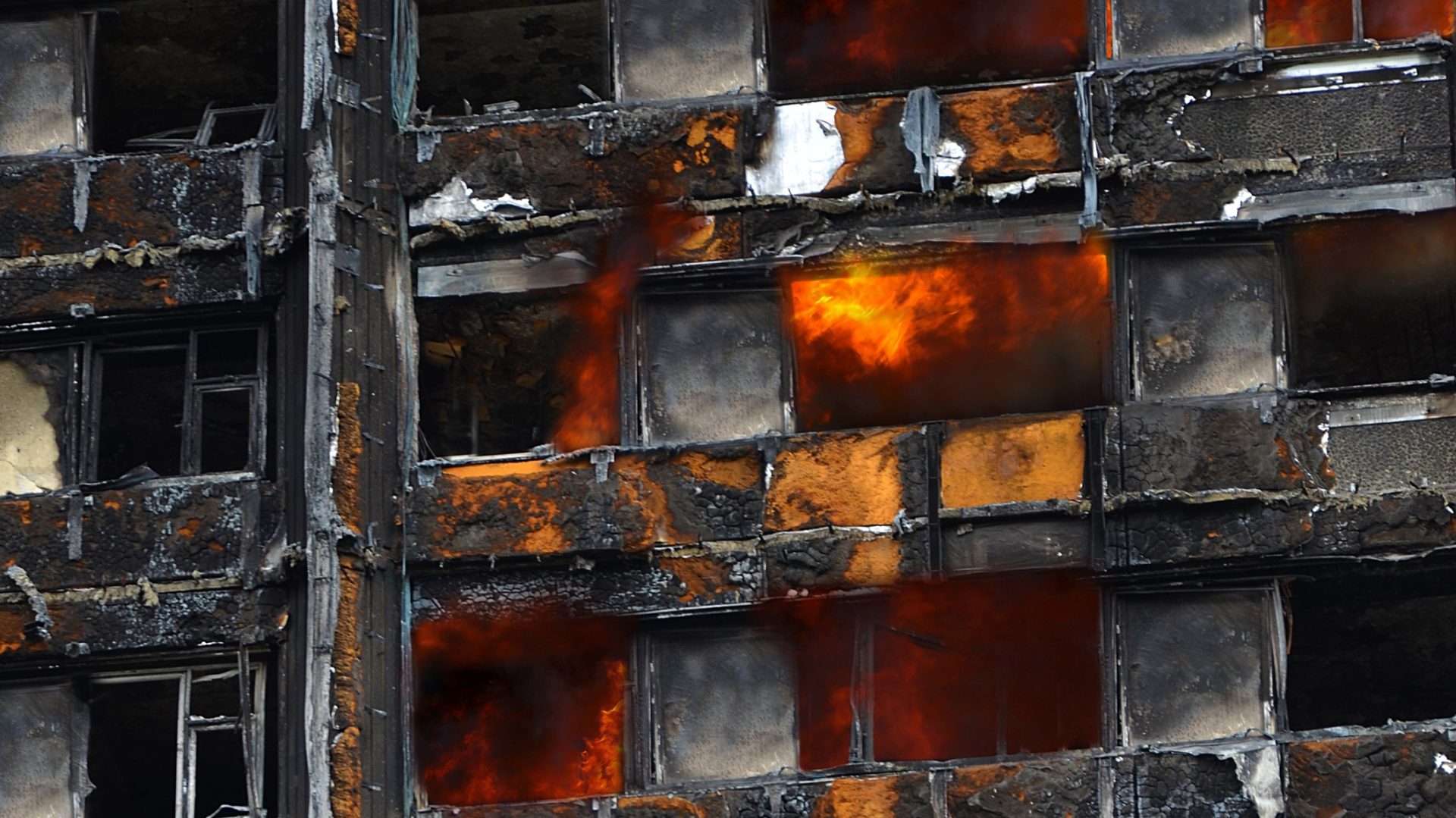
Arconic removed details that showed the cassette variant of its Reynobond 55 PE cladding no longer conformed to Class B in European fire tests from marketing literature, the Grenfell Tower Inquiry has heard.
Giving evidence to the Inquiry for a second day yesterday (11 February), former Arconic UK sales manager Deborah French agreed that the omission meant customers would not have known about a change in the way in which the product, which was the type used on Grenfell Tower, was classified unless they asked.
During the proceedings, French was showed two separate pieces of Arconic marketing literature produced in 2010 and 2012 respectively.
In the 2010 version, under a section marked “fire certifications”, both the cassette variants of Reynobond PE (polyethylene) and FR (fire resistant) core were listed as attaining European Class B.
However, in the 2012 version, only the FR certification was listed, with the PE core certification removed. The change came after an October 2011 test Arconic had performed on Reynobond PE in cassette form, which achieved a class E.
French denied that she had been aware of the change in the literature and could not explain it. She also said she had not been made aware of any decision at a higher level within Arconic to remove references to Class B on its marketing literature between 2010 and 2012.
Lead counsel to the Inquiry Richard Millett then read out a witness statement from French’s superior Claude Wehrle, based in France, who said: “It was agreed…that the reference to EN Class B in the marketing documents should be removed as it was no longer a wholly accurate reflection of the position. It was agreed that the sales team for each jurisdiction should be told of the EN E classification so that they could take this into account as relevant to their jurisdiction…The intention was for customers to be informed of the position when asking about the fire performance of the cassette variant of the product and that the classification was available on the CSTB website.”
French said she did not recall being instructed to tell her UK customers that Reynobond PE 55 was no longer class B.
Millett asked: “If Claude Wehrle’s intention was, as he says in his statement, that customers would be told of the position when asking, do we take from that that if the customers didn’t ask, they didn’t get told?”
French replied: “If they weren’t…yes.”
Millett added: “Does it follow from that that it was unlikely for a customer in the UK to find out about the up-to-date European classification for Reynobond 55?”
French replied: “Yes.”
‘Bad behaviour’ in fire
During the hearing, Millett also highlighted minutes of a 2011 meeting in Freiburg, Germany, attended by Arconic executives including Claude Wehrle and colleague Peter Froelich, at which French was not present.
The meeting recorded that the cassette variant of Reynobond 55 PE had attained Class E in European tests. Under a section marked “next steps”, it stated: “For the moment, even if we know that PE material in cassette has a bad behaviour exposed to fire, we can still work with national regulations who are not as restrictive. Some countries (Spain…) are already working with EN 13501 standards and the PE in cassettes is no more usable there. The evolution of fire regulation will put the PE out of the market in the coming months.”
Millett asked French if she realised that Arconic considered that PE cassette had “bad behaviour” in fire. French replied that she did not.
Millett continued: “Were you aware, notwithstanding what we can see in this document, that Arconic intended to continue to sell Reynobond PE to countries that are not working solely with the European classification system?”
French replied: “I wouldn’t have had that knowledge…It’s not something that I was involved in day to day.”
Countries not working solely with the European classification system included the UK but French said she was not aware of this at the time.
The Inquiry continues.











